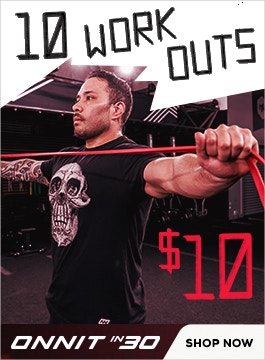Champions rely on their bodies to get paid. In order to get paid that Bugatti money, they have to maximize the capabilities of their bodies. This is a non-negotiable characteristic of champions.
Since it is anything but lucrative, and absolutely no fun to sit injured on the bench, they’re very careful about what they put into their bodies and what they put their bodies through. Anything that is not serving them is quickly removed. They’ve talked to experts, experimented on themselves and found what works best for them.
While the stakes may be higher for them than anyone else, there are some easy action items you can use to be a champion of your own domain.
1. Champions Know When They Are Hydrated
The first thing Brian Cushing, 2009 NFL Defensive Rookie of the Year, does in the morning is drink a glass of water.
After 8 hours of sleep, your body is dehydrated. It’s been working without water the entire time you were laying in bed. So one of the most powerful things you can do for your body is to drink a glass of water right away.
It’s not uncommon to see a football player running to the training room for a saline drip because of dehydration. Being dehydrated can cause cramping, so it hits athletes especially hard. Cramping can lead to a more serious injury if they’re not careful.
Unfortunately, unless you’re a pro player, you don’t have access to IV drips. And getting hydrated isn’t as simple as drinking a few cups of water to fill up your proverbial tank.
Your actual level of hydration is based on how much water your cells are holding. So when you drink water, it goes through a complicated diffusion process and you’ve got other areas of your body clamoring for water (like your intestinal lining), so it doesn’t go right where you want it to go right away.
The level of dehydration you feel when you just wake up is fairly minor. But the effects can ramp up quickly and they’re not pretty. Dehydration causes low energy, muscle cramping, confusion, and eventually, death.
While most of us will get enough water to survive, proper hydration is a key to optimizing performance on every level. Here are some tips to staying hydrated:
Choose Your Water Wisely
Water is one of nature’s best solvents, meaning that most of the solids it comes in contact with eventually dissolve into it.
Plastic Bottles – Certain plastics will dissolve chemicals such as BPA into the water, which can increase phytoestrogens and cause long term problems.
Tap Water – Most tap water contains chlorine for sterilization and fluoride apparently for teeth. The research on the benefits of fluoride for teeth is dubious and the safety of fluoride in high quantities has been called into question. While still a highly contested issue, it is best to steer clear as much as possible until the dust settles and a true determination can be reached.
Alkaline – Most alkaline water, including Kangen filters use a high quotient of dissolved solids to reach alkaline state. This can provide unbalanced mineralization, disturb stomach acid potency, and can be inherently dehydrating. While alkalinity is good, do it the old fashioned way with lemon water or apple cider vinegar.
Spring Water – Nature truly knows best. Switching to spring water helps you stay more hydrated during the night, meaning a better quality of sleep all around. Go to findaspring.com to harvest your own water, or if you are looking for a brand, check out Mountain Valley Spring water. It comes in glass bottles so it doesn’t leach potentially toxic chemicals into your water.
When using a water filtration system at home (to avoid all the potential crap in the municipal water system) it’s a good idea to add minerals back in. It’s as simple as adding a pinch of Himalayan salt in a glass of water.
Good filters do their job in helping remove stuff you may not want, but they also remove many important minerals. Notably, not all filters are created equal, so do your homework and find the one that suits you best.
Stop Doing Math and Drink
There is no magic formula for the amount of water you should be drinking. Depending on your habits, diet, workload, toxicity, etc every individual’s water needs will vary. As a general rule of thumb, err on the side of more water than not enough.
Avoid Dehydrating Factors
The main thing to remember, is that any time your body encounters a foreign body that alters the natural homeostasis, it is going to use water to flush it out. This includes a lot of the ’fun’ stuff like Alcohol, Caffeine, THC, etc.
2. Champions Know Their Heart Rate
I’ve worked out with Bode Miller more than a few times and every time I do, I’m continually impressed by the diagnostics he’s running. At any given time, he can tell you exactly what his heart rate is.
Why does he care so much?
Your heart literally contains your lifeblood and is responsible for pumping oxygen to your muscles. Oxygen is what gives you aerobic energy.
Your resting heart rate is a good indicator of cardiovascular endurance and how healthy you are in general. This means your heart is efficiently moving blood throughout your entire body. When you are sick your resting heart rate generally rises. It’s got more to contend with.
Knowing your heart rate is key to knowing your body, but it’s not the only indicator of whether you should work out or how hard you should be working out. More on that in the next section.
Your maximal heart rate is a good indicator for max anaerobic capacity. Anaerobic capacity is how much energy you can produce beyond the scope of what oxygen and aerobic energy can provide.
You tap into anaerobic capacity during heavy lifts or sprints. To find your maximal heart rate, grab a heart rate monitor and go all out for about 20 minutes on a high intensity exercise like hill sprints, or a battle rope.
When you’re done, simply check the monitor and see what your max heart rate was. You could try counting it directly afterwards, but counting and keeping track of time after a max effort can be like trying to hold onto a cheetah’s tail while he’s running away.
Once you’ve got that and your resting heart rate, it’s easy to fit workouts into heart rate zones based on what your goals are. The optimal training rate can be divided into 5 zones, based off your maximum heart rate. Knowing what each zone means will help you manage intensity, train for your goals and develop all energy systems.
ZONE 1: Very Light
HR Max: 50-60%
Average Duration: 20-40 mins
Feels Like: Very easy, little strain.
Benefits: Warm up and cool down, active recovery, overall health. Performance improves during recovery, and light intensity training can help boost this.
ZONE 2: Light
HR Max: 60-70%
Average Duration: 40-80 mins
Feels Like: Comfortable, easy breathing, low muscle load, light sweating.
Benefits: Improves general fitness, boosts metabolism, active recovery, improves low level aerobic fitness and endurance. Long-duration training in zone 2 results in effective energy expenditure.
ZONE 3: Moderate
HR Max: 70-80%
Average Duration: 10-40 mins
Feels Like: Steady, controlled, fast breathing, light muscle
Benefits: Improves aerobic fitness and performance. Enhances general training pace, makes moderate intensity efforts easier and improves efficiency. Improves efficiency of blood circulation and lactate removal and turnover.
ZONE 4: Hard
HR Max: 80-90%
Average Duration: 2-10 mins
Feels Like: Muscular fatigue and heavy breathing.
Benefits: Increases performance capacity, increases anaerobic threshold and lactic acid tolerance.
ZONE 5: Maximum
HR Max: 90-100%
Average Duration: less than 5 mins
Feels Like: Maximal or near maximal effort for breathing and muscles.
Benefits: Develops maximum performance and speed. Improves anaerobic fitness, trains fast twitch muscle fibers and increases power.
Again, find out what your goals are and you can discover which zone will work best for you.
3. Champions Know When They Need To Recover
Triathlete Ben Greenfield is deep into the science of training and heart rate variability (HRV). Heart rate variability is the time between heart beats. There are slight differences between each beat and it’s those differences we’re interested in.
The best time to get your HRV is the same time you should find your resting heart rate – right when you wake up. Just grab a compatible heart rate monitor and an app like SweetBeat or BioForce and monitor it for 5 minutes.
A good score is 80-90 or higher. That means you’re good to go for a hard day. If the variability is high though, you’ll have a lower score because your your parasympathetic and sympathetic nervous systems aren’t cooperating. If you’re in this state, it likely means that you’ve overreached.
Overreaching is what Ben prefers to call overtraining. Overtraining is technically full blown adrenal fatigue. You can’t produce adrenaline anymore and no matter how much you want to train, you can’t.
Overreaching is typically a state you’re in because you went HAM the day before and your body is still trying to recover. When you’re in that state, it’s not in your best interests to try and repeat your performance from the day before.
As much as you may want to, your body can’t handle it and it’ll let you know by making sure you can’t reach the max effort you’ve reached previously.
Champions track their HRV and make sure they’re in a good zone on competition days. That way they can pull the max effort out of their bodies instead of not being able to reach their potential.
But just because your HRV score is low doesn’t mean you shouldn’t do anything. Practice active recovery. Try some yoga, deep breathing exercises, go for a walk, sit in a sauna. There are dozens of ways you can still optimize yourself.
For more information about how to solve overtraining, listen to this podcast with Ben Greenfield.
4. Champions Know How To Compensate for Imbalances in the Body

I’m sure you’ve seen fencing champions and have wondered how they can possibly lead a normal life with one leg that’s so much bigger than the other. This, of course, is part of the sport.
By competing in a confined area where all strikes are more or less directly in front of them, they create their body in a way that performs best for their sport – which is by having a dominant lead leg and a weaker rear leg.
It works fine for them, but for everyone else, having such a disparity would crush their ability to play the sport.
Sure, a pitcher only uses one arm, but they need two to bat. Champions are aware of these imbalances and work hard to be almost as good with their weak side as they are with their dominant side. A more balanced body is stronger, faster, and more durable.
It’s one of the things we stress the most at the Onnit Academy. It’s so important that we’ve dedicated an entire course to it. Mobility, flexibility, and stability are the primary tenets of the program. It’s simple. We call this program Durability.
The more balanced you are, the more freely you can move in any direction, and the more stable you are in your movements, the less likely you are to get injured. Avoiding injury means you’re able to spend more time in the gym.
For champions, it means they’re able to spend more time playing the sport they love and getting paid to do it.
5. Champions Know How Input Affects Output

Food, supplements, and what you drink is your fuel. There’s no way around it. What you put into your body directly affects what you get out of it. Champions have talked directly with nutritionists and experimented with their meal plans to figure out what works best for them. When you need to work on a high level, you need to know everything you can about how it works and how it’s going to affect you.
I’m sure you’ve experienced it yourself. Some people do extremely well with whey protein. Other people can clear out the entire office. Brussels sprouts are on everyone’s ‘good list’ but will your body tolerate it without gas and inflammation?
Champions know what their body’s optimal fuel is. They can drill down and figure out their optimal ratio of macros and know how their body is going to respond if they drink a cup of coffee.
Your body is unique to you, so I can’t just hand you a meal plan and tell you to get after it. It’s going to take work, it’s going to take you listening to your body and tracking what you’re eating and the results you’re getting out of it. To be the champion of your body, you should be keeping a food journal and writing down how you’re feeling.
If you’re experiencing digestive issues or you’re not seeing the gains you want, but can’t figure out what’s wrong, try an elimination diet. Within a few weeks, you should be able to pinpoint the issue and get on track to total human optimization.




)





